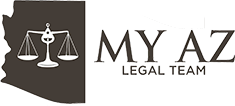Chapter 7 Bankruptcy
Chapter 7 Bankruptcy
Do I qualify for Tucson chapter 7 bankruptcy? What is the means test?
To qualify for relief using Chapter 7 Bankruptcy, the debtor may be an individual, a partnership, or a business entity. Apart from being in the classifications just listed, a debtor’s financial position must fall within the parameters of the means test which is a debt to income ratio set by the United States Bankruptcy Code. A potential Chapter 7 candidate must complete credit counseling classes within 180 days before filing.
There are also some restrictions if you have filed for bankruptcy (any chapter) before. For instance, if you have already used a Chapter 7 Bankruptcy in the past to discharge your debt you must wait eight (8) years before you file again. Also, please note that if during the preceding 180 days a prior bankruptcy petition was dismissed due to the debtor’s willful failure to appear before the court, comply with court orders, or the debtor voluntarily dismissed the previous case after creditors sought relief from the bankruptcy court to recover property upon which they hold liens; you cannot file.
The bankruptcy “means test” determines whether your income to debt ratio is low enough to qualify. It’s a formula designed to keep filers with higher incomes from filing for Chapter 7 Bankruptcy. High income filers who fail the means test may use Chapter 13 bankruptcy to repay a portion of their debts according to a designated plan.
Will bankruptcy eliminate all my debts? Are there any debts that remain?
Most unsecured debt is erased in bankruptcy. There are some exceptions to the general rule, as the following debts may be difficult or impossible to eliminate in bankruptcy:
- Child support and alimony
- Personal injury or death judgments
- Student Loans
- Income tax debts and all other tax debts
- Fines and penalties imposed for violating the law, such as traffic tickets and criminal restitution
Debts that are ordinarily discharged can also become non-dischargeable if they fall under the following criteria: Debts you incurred on the basis of fraud, such as lying on a credit application; Credit purchases of $1,225 or more for luxury goods or services made within 60 days of filing; Loans or cash advances of $1,225 or more taken within 60 days of filing Debts from willful or malicious injury to another person or another person’s property; Debts from embezzlement, larceny or breach of trust, and Debts you owe under a divorce decree or settlement unless after bankruptcy you would still not be able to afford to pay them or the benefit you’d receive by the discharge outweighs any detriment to your ex-spouse.
Will I lose my property? What happens to my house and car in bankruptcy?
No! Filing bankruptcy will not deprive you of all of your belongings. There is certain property that is “exempt” and that property will be protected from being sold off to settle a debtor’s debts. In Arizona, a list of exempt property can be found at the following website.
Why is filing for chapter 7 bankruptcy in Tucson a good option for me?
The simplest answer is to get rid of debts that have made it hard to live your life. Chapter 7 Bankruptcy gives most people a large amount of relief for relatively low cost.
But that is not the only reason, there are other reasons as well. For example after a bankruptcy petition is filed a creditor may no longer initiate or continue any legal or other action against the debtor to collect a discharged debt.
Another is that bankruptcy can stop foreclosure proceedings giving a debtor more time to either find a away to keep the house or find alternative places to reside that may be a better fit for the budget.
And there are many more! Ask an Attorney to explain how bankruptcy can help you remove the pile of debt that you have been under.
